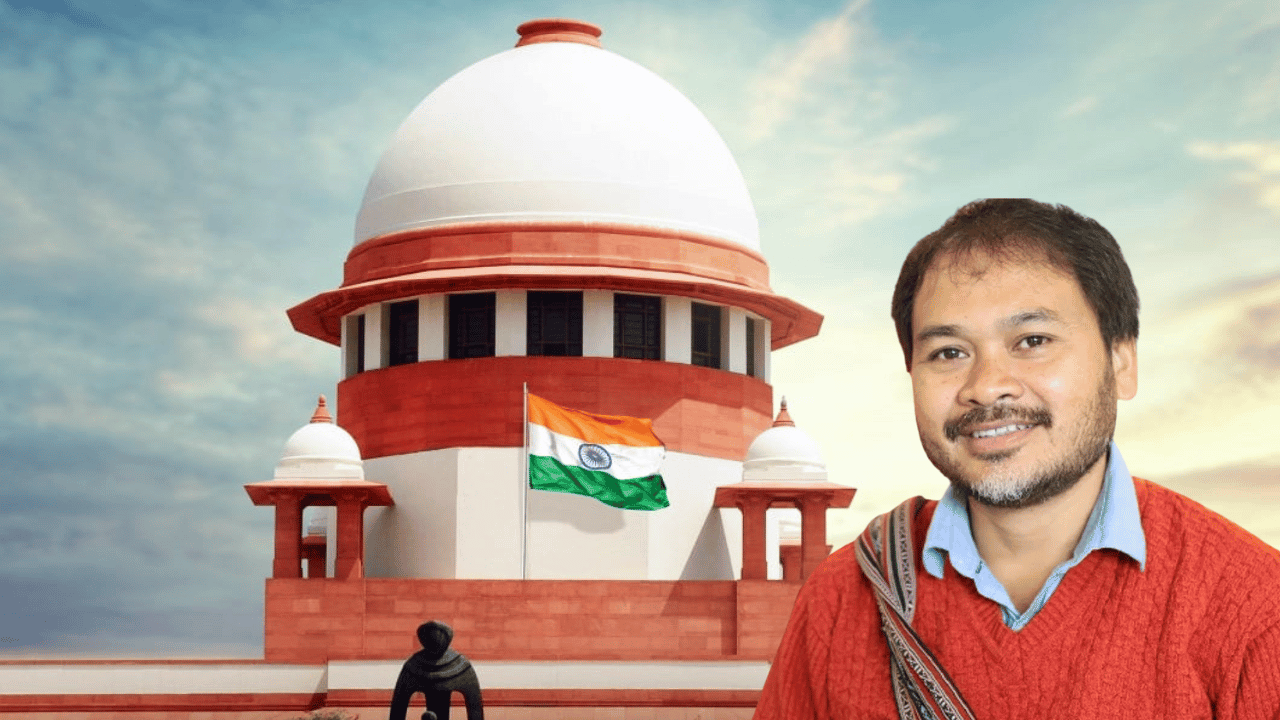On Tuesday, the Supreme Court upheld the revival of a Citizenship Amendment Act (CAA) case against Assam MLA Akhil Gogoi, in connection with the violence during the protests in 2019. However, the court also stated that Gogoi would remain on bail during the pendency of the case.
The case against Gogoi was initially dismissed by a special NIA court in Guwahati in July 2021. However, the Gauhati High Court had set aside the discharge order, which Gogoi had appealed against. The High Court’s order has now been upheld by the Supreme Court.
Senior attorney Huzefa Ahmadi argued on behalf of Gogoi during the proceedings that there were no claims that he had abused his freedom while out on bail after the discharge order. On the other hand, Solicitor General Tushar Mehta, representing the NIA, countered by stating that the CPI (Maoist), which Gogoi is accused of sending cadre for warfare training, is not a political party. Additionally, Additional Solicitor General Aishwarya Bhati, with the assistance of advocate Kanu Agrawal,emphasised that the charges under the UAPA were for more serious offences, such as using terrorist tactics and waging war against an elected government, and not for peaceful bandhs or shutdowns..
In connection with the demonstrations and speeches against the Citizenship Amendment Act (CAA) in December 2019, Gogoi and three other people were accused of a number of crimes and of having ties to Maoist organisations. These charges included violations of the UAPA and the Indian Penal Code’s Sections 124A, 153A, and 153B (Statement against National Integration), which encouraged animosity between religious groups.
The Citizenship Amendment Act, which was passed in December 2019, amends the Citizenship Act of 1955 to provide a path to Indian citizenship for non-Muslim illegal immigrants from Bangladesh, Pakistan, and Afghanistan. The Act has been controversial since its introduction, with critics claiming that it is discriminatory against Muslims and violates the Indian Constitution’s secular principles.
The protests against the Act in 2019 turned violent, resulting in several deaths and injuries. The police also arrested several individuals, including Gogoi, for their alleged involvement in the violence.
Gogoi, a prominent Assamese peasant leader, has been a vocal critic of the Citizenship Amendment Act and has been at the forefront of the protests against it. His arrest and subsequent imprisonment have been widely criticised by human rights activists and opposition politicians, who have accused the government of cracking down on dissent.
The Supreme Court’s decision to uphold the revival of the case against Gogoi has sparked fresh debate over the government’s handling of the protests and the charges against Gogoi. While some have welcomed the decision, arguing that Gogoi should face trial for his alleged involvement in the violence, others have criticised it as an attack on freedom of speech and expression.
The case against Gogoi is likely to continue for some time, and the Supreme Court’s decision to grant him bail during the pendency of the case has provided some relief to his supporters. However, the broader implications of the case for Indian democracy and human rights are still unclear.
same-sex marriage opposes By Akhil Bhartiya Sant Samiti









Leave a Reply